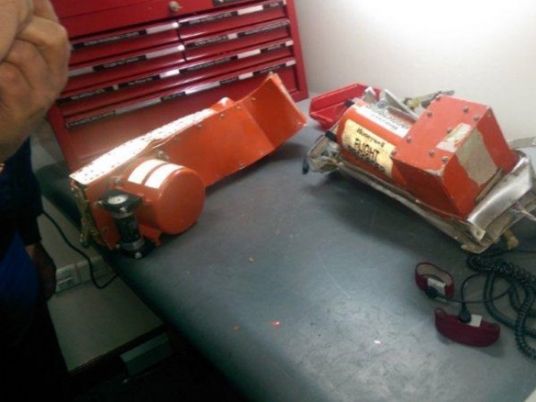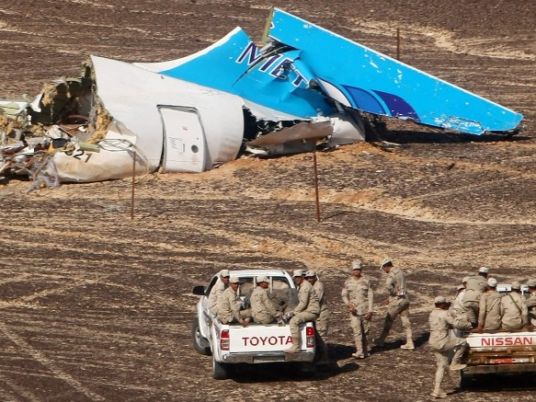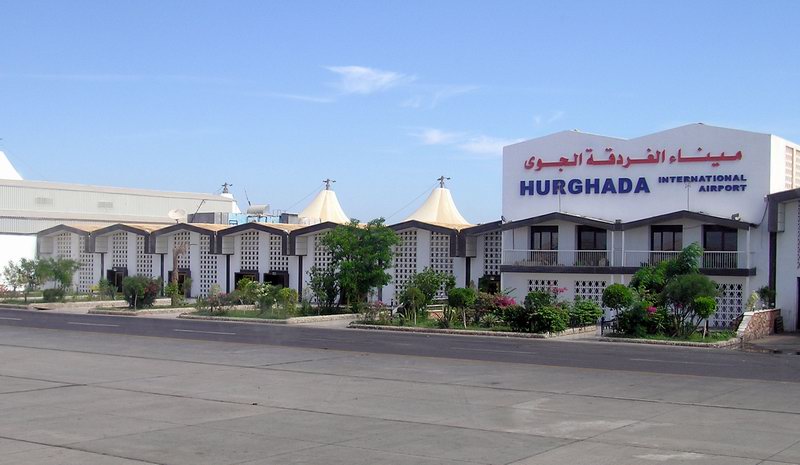
Egyptian aviation officials plan to hold a news conference amid dueling theories on what caused a Russian passenger jet to crash in the Sinai region.
In a tweet, the Egyptian Foreign Affairs Ministry confirmed the media briefing planned for Saturday, but did not provide any more details.
European investigators who analyzed the two flight recorders from the Metrojet plane that went down last weekend in Egypt are categorically saying the crash is not an accident, CNN affiliate France 2 reported Friday.
The investigators said the cockpit voice recorder of Metrojet Flight 9268 shows an explosion and the flight data recorder confirms the explosion is not accidental — there is no sign of mechanical malfunction during the initial part of the flight, France 2 reported.
Everything is fine during the first 24 minutes, then in a fraction of a second there is a blackout and no more cockpit conversation, convincing investigators there was a bomb on board, according to France 2.
Experts weigh in
CNN Aviation Analyst Richard Quest said there would have been different data on the black boxes if there was a catastrophic failure than if there was an explosion. The key is what happened just before the data suddenly stops, he said.
"It's this split second, and it's a millisecond, where you hear an explosion of some description," he said. "And you see all the parameters (on the recorders) go haywire before the power is completely lost. If this report is accurate, (investigators) have now analyzed that … heard it and they can identify it."
If the plane had broken apart due to structural failure, there would have been more noise — and for a longer time, he said.
Egypt's announcement
Russian President Vladimir Putin on Friday suspended Russian air traffic with Egypt until the cause of the crash can be determined, the Kremlin said.
The United States and Britain shared their intelligence with Russia before Putin decided to suspend flights, Kremlin spokesman Dmitry Peskov told CNN's Matthew Chance.
Putin spoke with Egyptian President Abdel Fattah el-Sisi about the security situation in Egypt.
"The two leaders agreed to strengthen cooperation between the relevant security authorities in the two countries," el-Sisi's office said.
Russia's resistance
Russia previously resisted the theory that a bomb brought down the airliner.
The jet, carrying mostly Russian families returning from Red Sea vacations, was 23 minutes into its flight Saturday from Sharm el-Sheikh to St. Petersburg, Russia, when it disappeared from radar over Egypt's Sinai Peninsula. A US satellite detected a heat flash over Sinai. The plane broke apart and fell 30,000 feet. All aboard died.
Russia's about-face buttressed a theory about the cause of the crash. As investigators pick through the rubble of the Russian airliner, and as Western officials sift through their own intelligence reports, some have suspected Flight 9268 was brought down by a bomb planted in its hold.
Some also think the bomb may have been smuggled on board in the Egyptian resort of Sharm el-Sheikh, where the flight departed.
Bomb theory
The bombing theory emerged late Wednesday, when Britain suspended flights from Sharm el-Sheikh to the United Kingdom because of security fears.
It became more pronounced when it was articulated by British Prime Minister David Cameron and US President Barack Obama, though neither expressed it as a certainly. Cameron said it was "more likely than not" that the cause of the crash was an onboard bomb. Obama said it was "certainly possible."
On Friday, the BBC quoted UK intelligence officials as saying the plane may have been brought down by a bomb smuggled on board by someone working at the airport in Sharm el-Sheikh. The BBC said the intelligence came from "intercepted communication between militants in the Sinai Peninsula."
Egyptian officials publicly continue to push back against the likelihood of a bombing — perhaps concerned about the country's crucial tourism sector — but a high-level Egyptian official who declined to be named due to the sensitivity of the matter said Friday the possibility of a bomb is "a theory we are not discarding."
Intelligence frustrations
But the official also expressed frustration that US and UK intelligence officials would not share information, especially when those details seem to point to an inside job at the Sharm el-Sheikh airport.
The frustration echoed that of Egyptian Foreign Minister Sameh Shokry, who told CNN he would "only be able to assess that conclusion if information was to be shared."
Hossam Kamel, Egypt's civil aviation minister, has said investigators had found no evidence to support the bomb theory.
Meanwhile, British tourists stranded in the resort when flights were suspended began leaving on eight flights that were scheduled to depart Friday.
Easyjet said one of its flights had landed Friday afternoon at London Gatwick Airport carrying 180 passengers. It was the first flight to return since restrictions were put in place Wednesday.
An estimated 50,000 Russians are vacationing in Egypt, according to preliminary data from the Russian Association of Tour Operators.
Did ISIS down plane?
Signs pointing to ISIS as the culprit, another US official said, are partially based on monitoring of the terrorist group's internal messages. Those messages are separate from public ISIS claims of responsibility, the official said.
In an audio message from ISIS' Sinai branch that was posted on terror-related social media accounts Wednesday, the organization adamantly insisted that it brought down the flight.
Bergen: What empowers ISIS
Typically, ISIS is quick to trumpet how and who carried out any attacks for purposes of praise and propaganda. To some, the fact that ISIS hasn't provided details in this case raised doubts about the group's claims of responsibility.
But Paul Cruickshank, a CNN expert on terrorism, said the lack of detail might have been to protect a mole recruited in the airport to plant the bomb on the plane.




